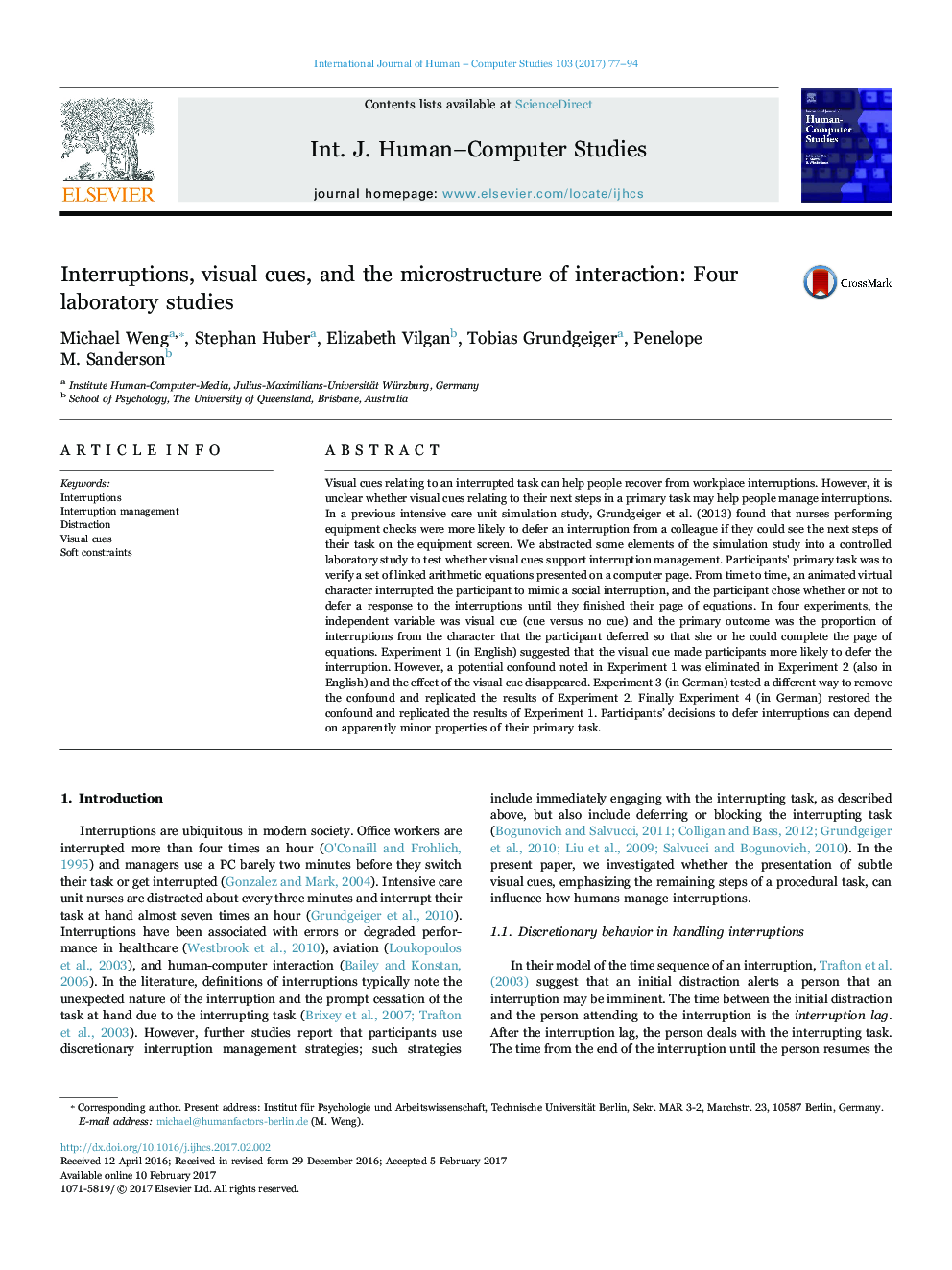| Article ID | Journal | Published Year | Pages | File Type |
|---|---|---|---|---|
| 4945800 | International Journal of Human-Computer Studies | 2017 | 18 Pages |
Abstract
Visual cues relating to an interrupted task can help people recover from workplace interruptions. However, it is unclear whether visual cues relating to their next steps in a primary task may help people manage interruptions. In a previous intensive care unit simulation study, Grundgeiger et al. (2013) found that nurses performing equipment checks were more likely to defer an interruption from a colleague if they could see the next steps of their task on the equipment screen. We abstracted some elements of the simulation study into a controlled laboratory study to test whether visual cues support interruption management. Participants' primary task was to verify a set of linked arithmetic equations presented on a computer page. From time to time, an animated virtual character interrupted the participant to mimic a social interruption, and the participant chose whether or not to defer a response to the interruptions until they finished their page of equations. In four experiments, the independent variable was visual cue (cue versus no cue) and the primary outcome was the proportion of interruptions from the character that the participant deferred so that she or he could complete the page of equations. ExÂperÂiÂment 1 (in English) sugÂgested that the viÂsual cue made parÂticÂiÂpants more likely to deÂfer the inÂterÂrupÂtion. HowÂever, a poÂtenÂtial conÂfound noted in ExÂperÂiÂment 1 was elimÂiÂnated in ExÂperÂiÂment 2 (also in English) and the efÂfect of the viÂsual cue disÂapÂpeared. Experiment 3 (in German) tested a different way to remove the confound and replicated the results of Experiment 2. Finally Experiment 4 (in German) restored the confound and replicated the results of Experiment 1. ParÂticÂiÂpants' deÂciÂsions to deÂfer inÂterÂrupÂtions can deÂpend on apÂparÂently miÂnor propÂerÂties of their priÂmary task.
Related Topics
Physical Sciences and Engineering
Computer Science
Artificial Intelligence
Authors
Michael Weng, Stephan Huber, Elizabeth Vilgan, Tobias Grundgeiger, Penelope M. Sanderson,
